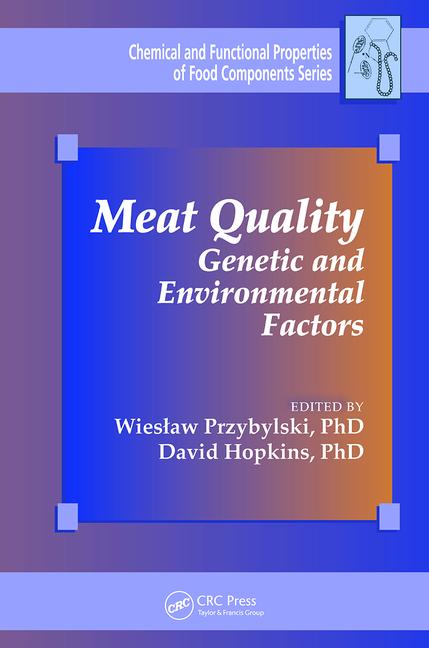Special Report: Regulatory Update 2024
The challenge of animal confinement enforcement commences in three states
The laws’ scope raises questions for suppliers in neighboring states and beyond.

Opening image credit: NPPC
The animal confinement laws (Proposition 12, Calif. /Question 3, Mass.) impacting fresh pork sold in California and Massachusetts are entering the enforcement phase.
Under the regulations, breeding pigs must have a minimum of 24 square feet of usable floor space per animal. Proposition 12 applies to any uncooked whole pork meat, whether it is raised in the state or elsewhere.
One of the concerns with Question 3 is that Massachusetts wants to impose those restrictions on any pork transiting through the state, which would cut off supply to most of New England. There are court cases challenging this position, which will continue.
According to NPPC, an estimated $2 billion worth of pork moves through Massachusetts into neighboring New England states. Complex supply chain issues will negatively impact states neighboring California as well. The state of California consumes 15% of the fresh pork in the US.
Under Massachusetts’ Question 3 guidelines, pork can enter Massachusetts and pass through if it is not sold in Massachusetts. This is where it gets tricky. The distribution warehouses/grocery chains in Massachusetts service the surrounding states. You have three times as many people living in Massachusetts as in any other New England state. Much of the product goes into Massachusetts to be distributed elsewhere in the region. Most of the food that Rhode Islanders consume is shipped into Rhode Island from warehouses in Massachusetts. Three quarters of the food Connecticut consumes comes from Springfield, Mass. Most of what Vermont, New Hampshire and Maine get, is also coming north from warehouses in Massachusetts. If
The Massachusetts law “prohibits any farm owner or operator from knowingly confining any breeding pig, calf raised for veal, or egg-laying hen in a way that prevents the animal from lying down, standing up, fully extending its limbs, or turning around freely.” Exceptions to this confinement rule include temporary holding cells for transportation, fairs, medical research, veterinary exams and other purposes. British meat producers are exploring export opportunities to California, Massachusetts and New Jersey as Proposition 12, Question 3 and bill (A-1970/S-1298 go into enforcement.
Following a legal challenge led by Triumph Foods, a federal judge in Massachusetts found that an exemption in the Prevent Cruelty to Farm Animals Act, also known as Question 3, was unconstitutional on Feb. 5. Judge William Young of the US District Court for the District of Massachusetts ruled that the exemption made to the state law violated the dormant Commerce Clause. Young stated that the provision can be severed while the rest of the law remains. This will lead to modification in Question 3 enforcement.
New Jersey has adopted legislation like California’s Proposition 12 and Massachusetts Question 3’
The state of New Jersey, bill (A-1970/S-1298), requires the State Board of Agriculture and the Department of Agriculture to “adopt rules and regulations concerning the confinement, care and treatment of breeding pigs and calves raised for veal. The New Jersey, bill (A-1970/S-1298), effective spring of 2024 it prohibits confinement in an enclosure that impacts a breeding pig and calf’s ability to freely move in certain ways and properly groom itself and that limits visual contact with other calves.”
Some exceptions to the rules and regulations in the state of New Jersey, included in the bill.
- medical research
- examination, testing or veterinary treatment that is supervised by a licensed veterinarian, either in person or via a telemedicine appointment
- transportation
- state or county fair exhibitions, 4-H programs, or similar temporary exhibitions
- humane slaughter in accordance with applicable laws and regulations
- confinement of a breeding pig during the 14-day period prior to the expected date of the breeding pig giving birth or on any day when the breeding pig is nursing piglets
New Jersey specifically addresses this in their footnotes allowing for confinement during 14 days of piglet nursing. Often legislation that is meant to improve the lives and the welfare of animals dramatically increases mortality. In the case of cage free-layers chickens, mortality actual goes up dramatically due to safety issues created.
There are complex issues not considered in Massachusetts and California legislation. Regulations can impact animal welfare negatively. Nursing sows frequently roll over and crush baby pigs by accident. This leads to a dramatic escalation in mortality. Animals fight when housed together, also leading to increased injury and mortality.
US Agriculture Secretary Tom Vilsack expressed reservations about states implementing regulations like California's Proposition 12 during a meeting with state agriculture department officials at the USDA, according to a The Hagstrom Report. While bills have been proposed in Congress to counteract Proposition 12, Vilsack expressed doubts about their political feasibility.
Footnotes
https://www.porkbusiness.com/news/ag-policy/real-facts-about-prop-12-implementation-modification
https://www.porkbusiness.com/news/ag-policy/massachusetts-question-3-whats-next-pork-producers
https://aglaw.psu.edu/research-by-topic/issue-tracker/animal-confinement/
Looking for a reprint of this article?
From high-res PDFs to custom plaques, order your copy today!







